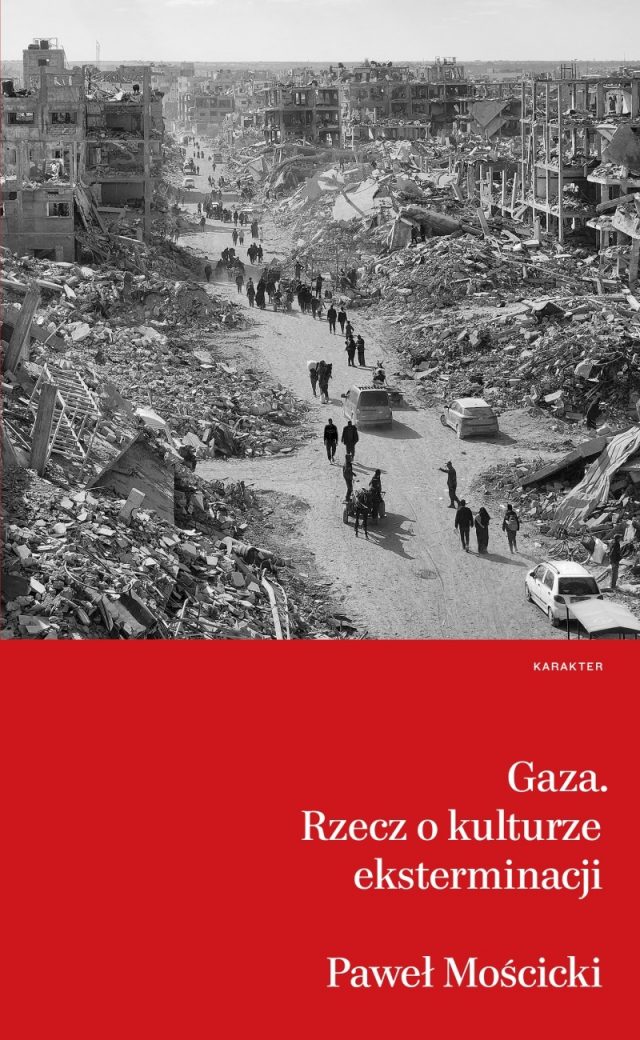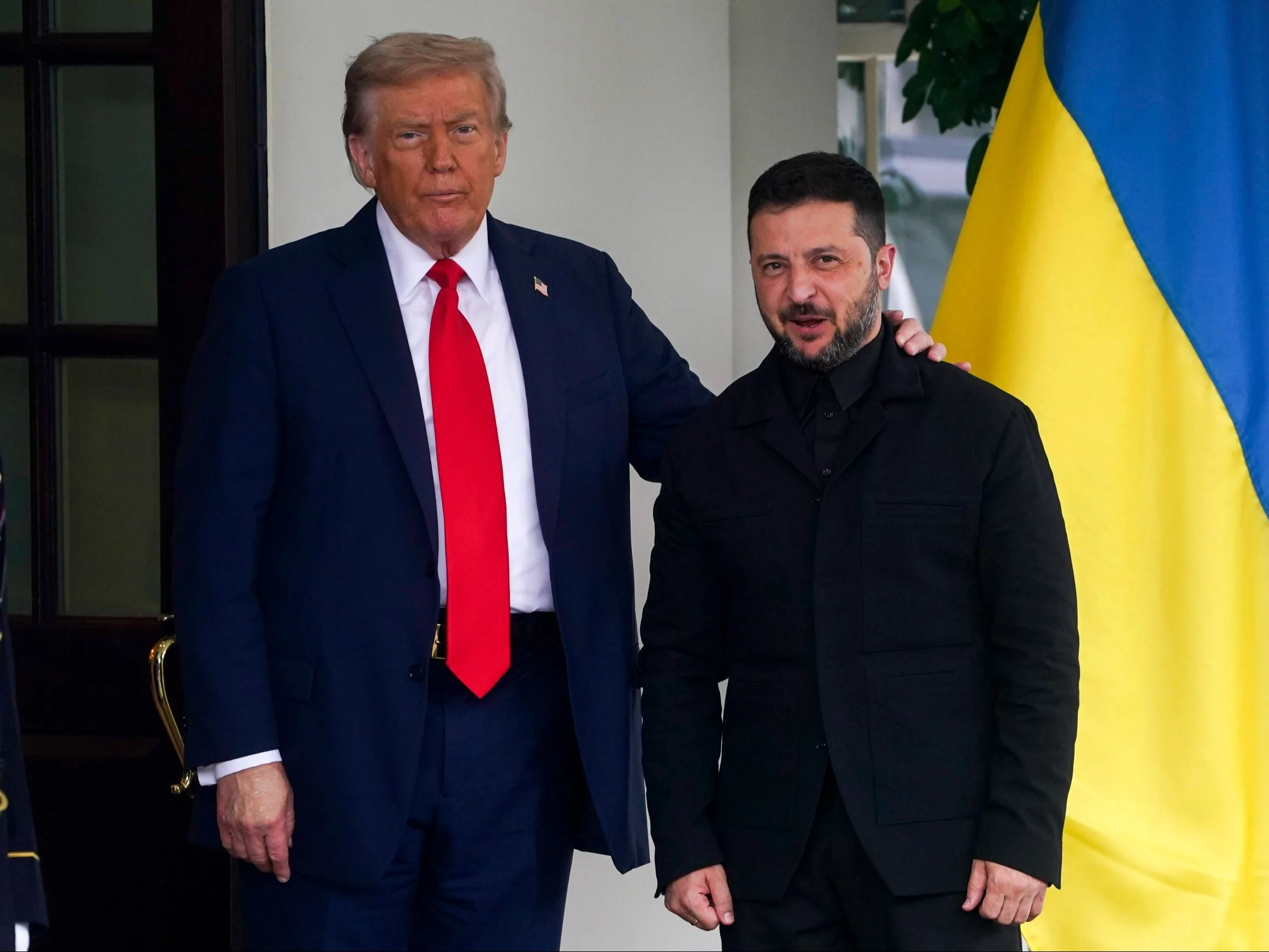The criticism of the genocide committed present by Israel in the Palestinians requires large courage. Even more courage requires the location of the world's extermination of the nation in the mediate East in a wider cultural context – an effort to scope the sources of our consent to mass murders and even to justify them.
Such an ambitious and, at once, successful effort Prof. Paweł Mościcki, philosopher from the Institute of Literary investigation of the Polish Academy of Sciences. Referring a small to the classics interpreting human behaviour during the Nazi crimes just next door, the author states: “We are part of a culture whose smooth functioning of the opera is unnoticeable, you could say – banality, surrounding us evil” (p. 12).
Mościcki is not afraid of analyses of the essence of the Israeli statehood itself. "According to the authoritative principles of our culture, the very concept of the Israeli state in its current form should break down all the scales of 'religious extremism', 'fascist tendencies' and 'racial violence'" (p. 18)," he writes. This is not a strategy error, an accident at work or a deviation, but the essence of the Zionist project. It is clearly judged by the Jews themselves, or at least by any judaic intellectuals. Quoted by the Moscite typical of the judaic community in France Maxime Benatouil states that Zionism is “colonialism founded on judaic supremacy and obsessively focused on demographic issues” (p. 35). In fact, the Polish student wants to specify the real Zionism existing in practice in the mediate East, the word “Israelism”, described by him as “a strategy of conditions for the anticipation of genocide, a collection of beliefs, arguments and applicable measures to make the physical elimination of Palestinians possible and even legitimate or desirable” (p. 37). Zionism is in this context a doctrine to the point of modern, transferred from European dirt to the mediate East. The designation that the judaic state is built from scratch in Palestine, from its “modern”, “progressive” foundations, has led, as is frequently forgotten, to the marginalization and exclusion from this task of traditionalist communities of Levantine Jews surviving there earlier. The emergence of the twentieth-century Israeli statehood is considered to be a magical caesura from which it all began. So there is no question of respecting even the presence of another indigenous cultures and ethnos themselves – they are subjected to absolute physical erasure.
The fundamental component of the strategy of Israelism is the mention to the specific, though imposed upon the full modern alleged West, genocide on Jews during planet War II. This is not about any demeaning of the tragedy of the judaic nation, but about giving it appropriate proportions and depriving it justifying all modern judaic beast of nymbu uniqueness. However, the “absoluteization of the Holocaust” (p. 42) dominates us to specified an degree that even the author of this book writes it through the large “Z”, although he claims that there has been a “transformation of the historical event, resulting from many ideological, social and political factors, into a metaphysical event” (p. 42).

Meanwhile, genocide on Jews must – the author postulates – be planted in the past of another crimes of this kind, which we do not deficiency in times near. The process of victimizing victims and their descendants leads to the Jews being regarded as absolutely "good" and, if so, exempt from all work for their actions, entitled to carry out the most bloody exterminations. He saw it in France, even though Alain Badou, who wrote 20 years ago that being the victim of the Nazi genocide “were given not only to descendants and descendants of descendants, but besides to anyone who uses that name, even though he was the leader of the country or an officer of the army persecuting those who confiscated the land” (p. 233-234). Of course, it is not that the Palestinian side always acts in a humanitarian and peaceful way. Mościcki notes this, but at the same time he honestly notes that “A nation doomed to demolition does not have the freedom to decide, is cornered” (p. 121).
‘In the context of victimisation, that is, giving to Jews as an cultural group and then to the state representing it, the position of permanent victim, ‘Never again’ begins to mean ‘Never again to Jews’ (p. 51), notes Mościcki. In this dogma, the full Western technological planet is forced to function, which, like fire, avoids dealing with the technological analysis of the phenomenon of the presently imposed explanation of the extermination of Jews; “It appears that the position in the strategy ensures the repetition of arguments building criminal mythologies, alternatively than guarding academic standards and critical analysis of sources” (pp. 58-59). Thus, all criticism of Israel's actions is invariably presented as an act of anti-Semitism. "When only Israel commits a crime in the Palestinians, the Western planet is informed of a fresh wave of anti-Semitism, the nature of which undergoes continuous transformation, even though it is besides considered a almost transhistoric phenomenon" (p. 105), writes Paweł Mościcki. Israel is thus impregnated with all criticism; it can go to anything without the greater hazard of cutting off Western partners controlled by it mentally. "There is no level of fascism that Israeli politicians will not be treated by their European counterparts (and that of all parties, including nominally leftist and anti-fascist) with full honors" (pp. 245-246), we read.
The base, or technology of extermination presented as defensive actions, is adapted to the ideological superstructure. It is served by ruthless tactics specified as Hannibal's directive that Israeli soldiers have the right to kill judaic civilians who can get into Palestinian captivity as hostages. On the intellectual level, extermination becomes possible only if it is preceded by dehumanization of the exterminated group. An effective method of shaping minds in this situation is “propaganda of cruelty”, known from the fronts of another wars (although Ukrainian Bucza), to convince that the opposing organization had done actions to remove it from the genre community of humanity. Thus these "terrorists" or "criminals" can be physically eliminated, like a population of parasites or insects. On the margins – in akin poetics the 3rd Reich presented in its propaganda materials Jews themselves. Israel is “defensive” not only in the territory occupied by Palestine. It is possible to paraphrase the old saying that "The West interferes with the interior affairs of the russian Union around the world" – present Israel is "defensive", attacking another sovereign states – Lebanon, Iran, Syria or Yemen.
An illustration of the application of ideology in criminal practice, the usage of individual techniques by the Israeli side is simply a reasonably thorough analysis of events on October 7, 2023. First of all, the author points out that the Israeli services most likely knew very well about the planned Hamas attack on that day. In fact, they seem to have deliberately led to it. The improvement of social media and technology makes the extermination of Palestinians not even peculiarly hidden. Therefore, Mościcki, following a number of another authors, discovers the appalling essence of the present genocide in the mediate East: he believes that it is the extermination of "slow motion" (p. 128), "genocide broadcast live" (p. 131). Paul Mościcki uses and cites a number of Israeli sources. The perpetrators of extermination in the past did not have the chance to pride themselves on their “doings”; any of them covered their tracks with awareness, possibly not so much (and not only) threatening their responsibility, but, above all, feeling a frightening ethical dissonance. It's all in the past. Israel's defence Army boasts of execution in public, and reports of its atrocities are intended to inspire a sense of compassion towards the perpetrators who have come to act so violently in the name of the higher, morally sanctioned acts, not the victims falling under their blows, but the long-standing dehumanized ones. The author notes the gruesome correctness: "Hamas' fictitious decapitation of Israeli children has provoked more outrage than tearing apart the bodies of Palestinian children, which can be seen almost all day where mass media and social media censorship do not yet scope out" (p. 167).
In the name of achieving the goal of ultimate Israelism, the large Israel, is undergoing a process of physical demolition of all physical and symbolic obstacles facing Tel Aviv. This is among another things mentioned by the Moscicki political genocide (the elimination of Palestinian leaders and supporting Palestine, frequently in terrorist attacks organised by peculiar services), culture genocide (the elimination from the space of all non-Jewish cultural objects), urban genocide (the alignment with the historical land, the late surviving Palestinian urban tissue), and even necrocy (the author gives examples of the demolition of non-Jewish cemeteries as part of Israel's taking full control of space, besides symbolic). The Israeli side presents all of this in a completely different light, utilizing exceptionally neckless interpretations and manipulation. Still, they work beautiful well. Muscicki, in the footsteps of Stanley Cohen, mentions the 4 most common types of denials: 1) open (Israel is humanitarian); 2) discredit (recognition that sources indicating crimes are connected with Hamas or another opponents of Israel); 3) change of name (civil sacrifices may and may happen, but are purely accidental); 4) justification (we kill everyone, due to the fact that possibly there are terrorists among them as well).
The Israeli extermination plan is implemented utilizing the latest technological achievements, and so with the engagement of fresh technology, corporate giants; it is simply a "high-tech genocide" (p. 156). This is accompanied by an astonishing symbiosis between political (Israel) and corporate (big tech sector). As Paweł Mościcki points out, erstwhile Mossad officers, including the elite 8200 unit liable for collecting and analyzing Palestinian data, sit on the boards of major American technology companies or artificial intelligence.
Does the problem concern Palestine alone and can be reduced to a circumstantial community, closed within defined geographical limits? According to Muscicki, no – and this is possibly 1 of the most crucial reflections of this book. "The genocide in Gaza can be regarded as a signal of what the era of authoritarian capitalism is preparing for us, the first decades of which we are experiencing" (p. 159) he writes. So far, the full West can be accused of complicity in the crimes of genocide committed by the forpost of its civilization in the mediate East – Israel. This sharing is manifested on many levels. Mościcki mentions the information, technical, political and structural sphere, but we could most likely do an even broader review of the various areas of life. The book by Paweł Mościcki is mandatory reading not only for those who want to realize what is happening in the mediate East. It's besides an interdisciplinary journey through hell, in the cauldrons that can start cooking us at any time. No 1 in Poland has always written so hard and very accurately about this. And I'm certain no 1 will compose for long, due to the fact that courage is becoming more and more in deficit.
Mateusz Piskorski
Paweł Mościcki, “Gaza. Thing about the culture of extermination”, Karakter Publishing House, Krakow 2025, p. 278.
Photo: Wikipedia
Think Poland, No. 31-32 (3-10.08.201025)












